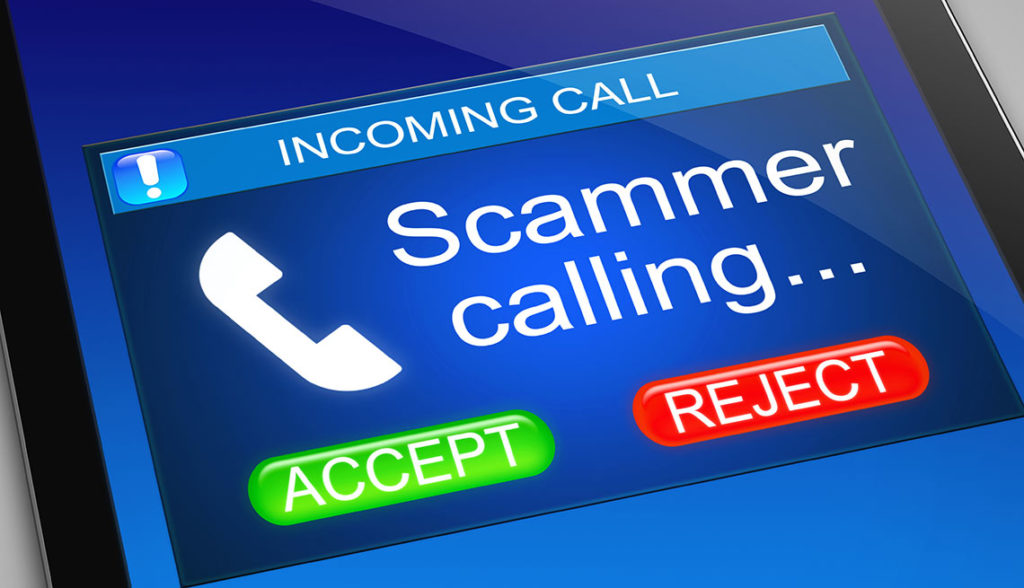NEW YORK - For small businesses today, scams are a major and growing problem, often perpetrated by unscrupulous individuals possessing delicate information and seeking to separate hard-working entrepreneurs from their money. However, the Better Business Bureau recently released a list of the most common scams targeting businesses today, something that is vital reading for pretty much anyone, whether they work for themselves or someone else.

Staying informed about the most common scams going around and getting familiar with the different techniques involved is the best defense for any small business owner not looking to become a victim, and when armed with the information provided by the Better Business Bureau, identifying these vile charlatans and avoiding them is now easier than ever.
Most scams nowadays involve people who have acquired a business’ publicly-available contact information and, with a bare minimum of research, will reach out to that company posing often as an authority figure or charitable institution while requesting money. Scams of this nature can really devastate a business if successful, and it's vitally important for any entrepreneur to be prepared when they become the target of a phone or email scammer.
Some of the most common small business scams include the following:
- Businesses receiving fraudulent invoices requesting payment for goods and services that were never provided. These individuals will often attempt to have the bookkeeper or other authorized payment representative wire or transfer large amounts of money to an unverified account. Typically, the amount of money requested begins as relatively small in an effort not to raise concerns; however, if the scam is successfully carried out, often more invoices will follow requesting greater amounts.
- Businesses should beware of people claiming to be representatives of a local print or online Yellow Page directory requesting to update their business listings. Often, the business is billed large amounts of money for fake listing services, including ads that they were led to believe would be displayed in their local Yellow Pages; of course, these ads will never materialize.
- Some scammers will actually contact consumers, claiming to be a legitimate, existing company in an attempt to rip them off in one way or another. While the actual company they are claiming to represent doesn't suffer financially in these types of situations, their reputation certainly does, as they are often associated with the scam in question, and are often held responsible.
- Other scammers will contact a company claiming to be representatives of a charitable group or institution while requesting donations for various causes. While many of these organizations are real, there is always the threat of con-men and charlatans mixed in who are looking to separate you from your hard-earned money. If you're unsure whether or not a charity that has contacted you is legitimate, it pays to reach out directly to the charity they're claiming to represent and confirm their identity before writing any checks.
- Phishing scams are more recent phenomenon that involves emails that appear on the surface to be legit, but often contain links that will download a virus to your computer when you click on them. These links will subsequently gather personal information located on your computer that can be used against you in a variety of ways. Of course, always make sure that any anti-virus and anti-phishing software on your computer is up to date, and if you receive an email from an unfamiliar source, always treat it with a very high level of scrutiny before interacting with it in any way.
- Some businesses will receive a contact from an organization about an award they have allegedly won, and are requested to pay a certain fee up-front before receiving the award. In addition to potentially paying for an award that doesn't even exist, a business may also find themselves paying phantom membership fees on an annual basis that they never agreed to if they supply credit card information. Much like when receiving requests for charitable donations, always do some detective work and confirm the legitimacy of any organization that offers you an award before accepting.
- And finally, there's the over-payment scam. This involves a fraudulent customer attempting to purchase goods or services from a given business; they will send a check that is greater than the amount that said goods or services will cost, and will then request a refund in the amount of the difference. However, the company will soon become aware of the scam when the original check eventually bounces, leaving them in the hole for the full amount.
Scammers are more plentiful than ever before thanks to the abundance of information available out in the wild combined with the anonymity provided by the Internet. Therefore, as a small business owner, it's vital for you to stay on top of what's happening and to use caution and common sense when dealing with anyone you don't know. It's hard enough getting a small business off the ground these days, but if you use your head – and stay on top of the latest scams – it'll make your job that much easier.


